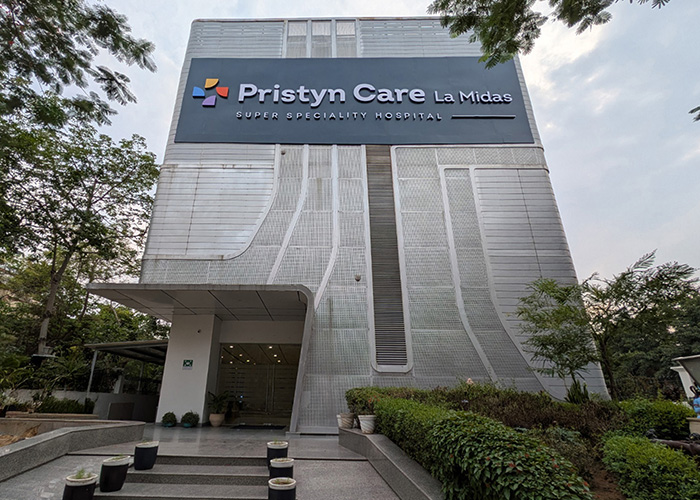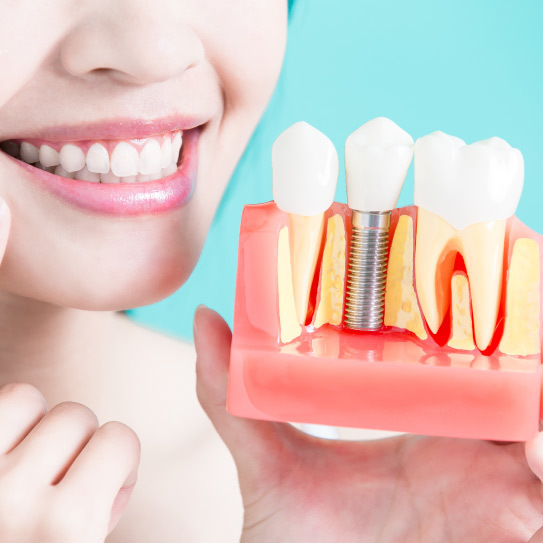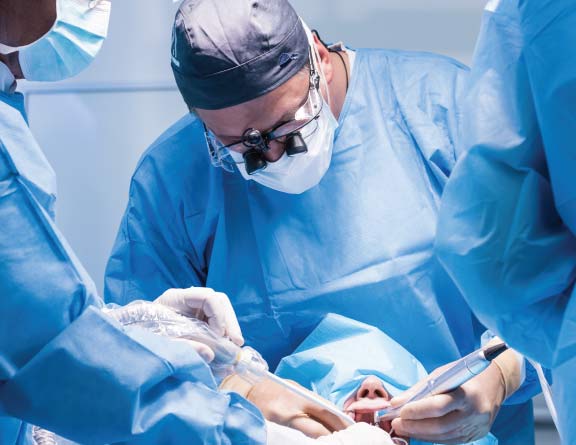
Gurgaon
USFDA Approved Procedures
Minimally invasive. Minimal pain*.
Insurance Paperwork Support
1 Day Procedure




Dental implants are an effective and popular solution for replacing missing teeth. They provide a permanent and natural-looking solution for individuals who have lost one or more teeth due to injury, decay, or other oral health issues.
A dental implant consists of a titanium post that is surgically placed into the jawbone, acting as an artificial tooth root. This post provides a stable foundation for a replacement tooth, known as a crown, to be attached. The crown is custom-made to match the color, shape, and size of the patient's existing teeth, ensuring a seamless and natural appearance.
Dental implant surgery is a multi-step process that requires careful planning and collaboration between the patient, dentist, and oral surgeon. While the procedure may take several months to complete, the end result is a fully functional and aesthetically pleasing smile.


Dental Implants in Gurgaon - Treatment Procedure
Delivering Seamless Surgical Experience in India
Your safety is taken care of by thermal screening, social distancing, sanitized clinics and hospital rooms, sterilized surgical equipment and mandatory PPE kits during surgery.
A dedicated Care Coordinator assists you throughout the surgery journey from insurance paperwork, to free commute from home to hospital & back and admission-discharge process at the hospital.
Our surgeons spend a lot of time with you to diagnose your condition. You are assisted in all pre-surgery medical diagnostics. We offer advanced laser and laparoscopic surgical treatment. Our procedures are USFDA approved.
We offer free follow-up consultations and instructions including dietary tips as well as exercises to every patient to ensure they have a smooth recovery to their daily routines.
Dental implants are designed to be a long-term solution for missing teeth. On average, dental implants can last for 25 years or more with proper care and maintenance. However, with advancements in technology and materials, some dental implants have been known to last a lifetime.
Dental Implant cost in Gurgaon starts from Rs.30,000 and goes up to Rs. 60,000 depending on the treatment and type of implant placed.
A dental implant can replace a single missing tooth or multiple missing teeth, depending on the patient’s needs and treatment plan.
The two main types of dental implants are endosteal implants and subperiosteal implants. Endosteal implants are placed directly into the jawbone and are the most common type of implant used. They are typically made of titanium and provide a stable foundation for artificial teeth. Subperiosteal implants are placed on top of the jawbone, beneath the gum tissue. They are used when there is not enough healthy jawbone to support endosteal implants.
Yes, dental implants can be removed. The removal process involves a surgical procedure where the implant is carefully detached from the jawbone. It is typically recommended to consult with a dental professional for proper assessment and guidance on implant removal.
Dental implants have become a popular option for individuals seeking to replace missing teeth. This innovative dental treatment offers a long-lasting solution that not only restores oral functionality but also enhances the overall aesthetics of the smile.
There are different types of dental implant treatments available, each catering to specific dental needs. We will further discuss the different types of dental implants available for patients in Gurgaon.
Single-tooth implantation is a dental procedure that involves replacing a missing tooth with an artificial tooth root and crown. The process begins with the surgical placement of a titanium implant into the jawbone. This implant serves as a stable foundation for the replacement tooth. After a healing period, a custom-made crown is attached to the implant, providing a natural-looking and functional tooth. Single-tooth implants offer several benefits, including improved chewing ability, enhanced appearance, and preservation of bone structure. This procedure is a reliable and long-lasting solution for individuals missing a single tooth.
An implant-supported bridge is a dental prosthesis that replaces multiple missing teeth. It consists of two or more dental implants, which serve as the foundation for the bridge. The implants are surgically placed into the jawbone, providing stability and support for the bridge. This type of bridge offers a long-lasting and natural-looking solution for individuals with missing teeth.
All-on-4 implants are an efficient solution for patients who require full arch restoration. This treatment involves the placement of four dental implants in the jawbone, strategically positioned to provide maximum support for a complete arch of teeth.
All-on-4 implants offer several advantages, including reduced treatment time, improved stability, and a more cost-effective solution compared to placing individual implants for each missing tooth.
All-on-6 implant is a dental procedure that provides a fixed solution for patients who have lost multiple teeth or are about to lose them. It involves the placement of six dental implants in the upper or lower jaw, which serve as a foundation for attaching a full arch of prosthetic teeth. This procedure offers excellent stability and functionality, giving patients a natural-looking and comfortable smile.
It is important to discuss the benefits and risks of dental implants treatment with a qualified dentist to determine if it is the right option for you.
Follow the dentist’s instructions for pain management and take prescribed pain medication as directed.
Proper post-operative care is crucial for the success and longevity of your dental implants. If you have any concerns or questions, don’t hesitate to reach out to your dentist for guidance and support.
Dental implant cost in Gurgaon may range from INR 35,000 to INR 50,000 in India. The final cost of the dental implant treatment may vary for each individual depending on various factors such as:
A dentist or another oral health professional can estimate the cost of dental implant surgery during an initial examination.
Pristyn Care is a popular surgical care provider in India that offers affordable dental implant treatments in Gurgaon. We have skilled dentists who can perform jaw and ridge augmentation surgeries for patients with significant bone loss, increasing the chances of a successful implant.
Our clinics have advanced dental equipment to ensure you get the best treatment possible. Our dentists will also give you tips on how to maintain good dental hygiene before and after the treatment. If you want to learn more, schedule your appointment in Gurgaon.
Ashish
Recommends
Very good doctor, feeling safe now
.svg)
.svg)
.svg)